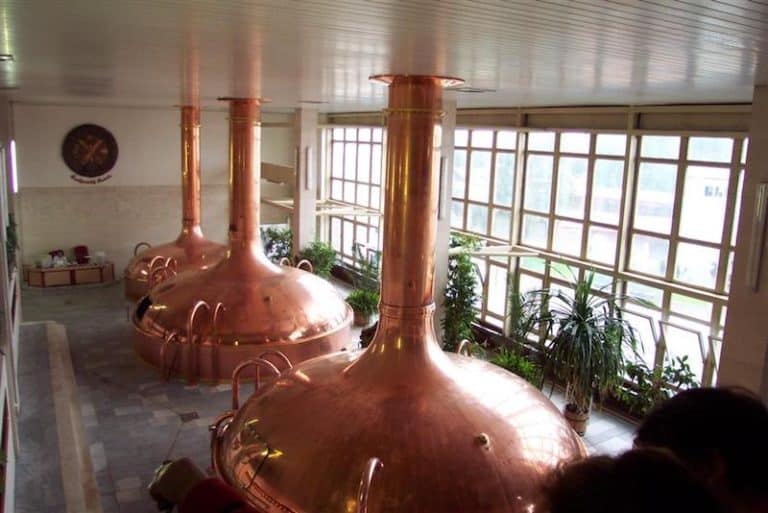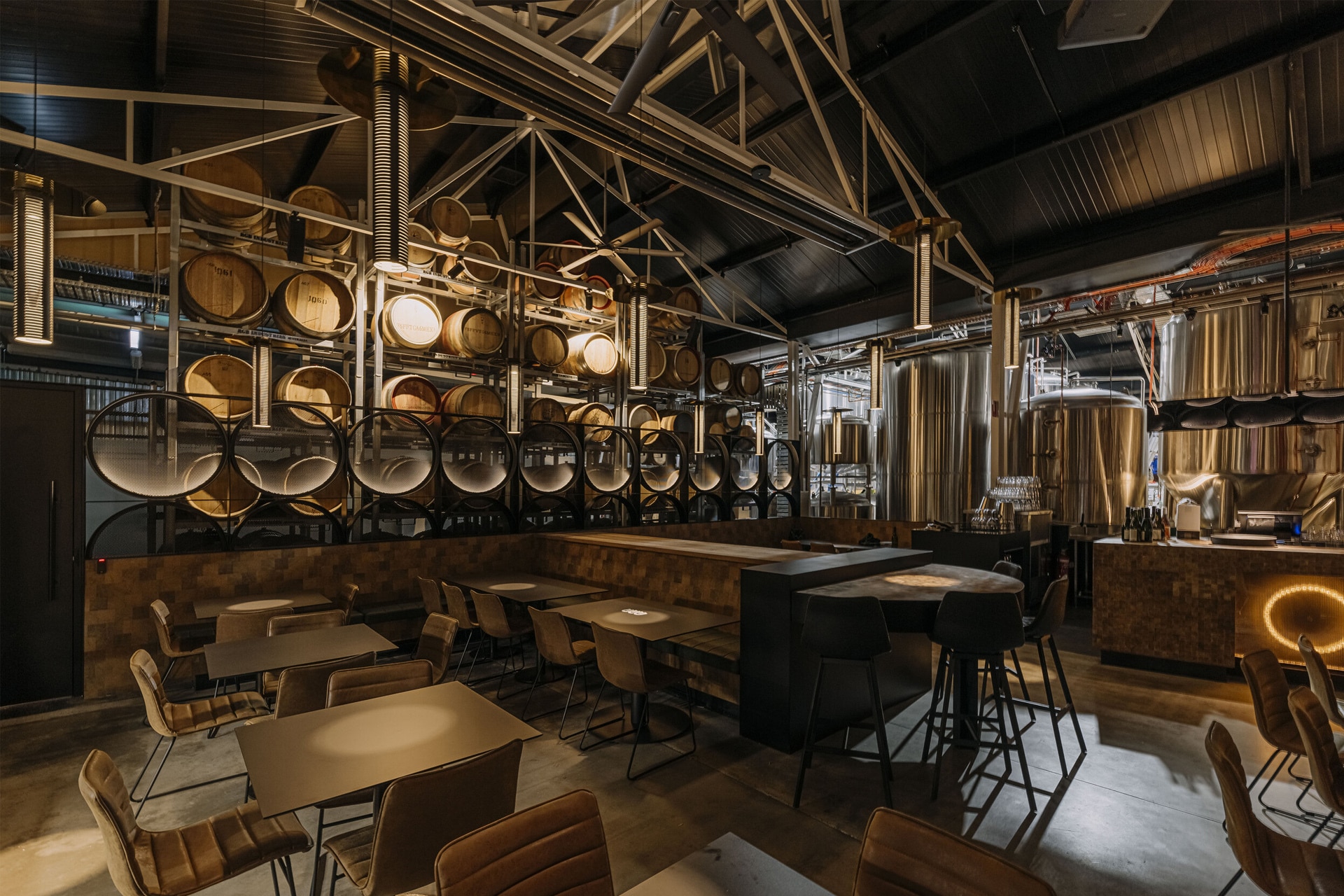How much does contract brewing cost? This question is at the forefront of many craft brewers’ minds as they navigate the complexities of scaling their operations. Contract brewing offers a flexible and cost-effective alternative to building and operating their own brewery, allowing them to focus on their core competency – crafting exceptional beer. But understanding the true cost of contract brewing requires a deeper dive into the factors that influence pricing and the various models available.
From production volume and recipe complexity to packaging choices and marketing considerations, a multitude of factors contribute to the final cost of contract brewing. This guide delves into the intricacies of contract brewing costs, exploring the key drivers, pricing models, and additional considerations to help brewers make informed decisions.
Understanding Contract Brewing
Contract brewing is a popular arrangement in the craft beer industry where a brewery, often a smaller one, contracts with another brewery to produce its beer. This arrangement offers several benefits, particularly for smaller breweries, helping them overcome challenges related to capital investment, production capacity, and market access.
Services Included in Contract Brewing
Contract brewing arrangements typically include a range of services provided by the contract brewer to the client brewery. These services can vary depending on the specific agreement, but commonly include:
- Brewing: The contract brewer will brew the client’s beer according to their recipe and specifications, using their equipment and expertise.
- Packaging: The contract brewer can package the beer in various formats, such as bottles, cans, or kegs, based on the client’s preferences.
- Labeling: The contract brewer can provide labeling services, including design, printing, and application of labels to the packaged beer.
- Storage and Distribution: The contract brewer may offer storage and distribution services, depending on the agreement and their capabilities.
Contract Brewing Models
There are different models of contract brewing, each offering a different level of service and flexibility:
- Full-Service Contract Brewing: In this model, the contract brewer handles all aspects of production, from brewing to packaging and distribution. The client brewery focuses on branding, marketing, and sales.
- Partial-Service Contract Brewing: In this model, the client brewery may handle some aspects of production, such as packaging or distribution, while the contract brewer focuses on brewing. This allows the client brewery to retain more control over certain aspects of the process.
Cost Factors in Contract Brewing

Contract brewing is a popular choice for craft brewers, but the cost can vary significantly. Understanding the key factors that influence the price of contract brewing is essential for making informed decisions and budgeting effectively.
Production Volume
The volume of beer you plan to produce is a major factor in determining the cost of contract brewing. Larger production runs generally lead to lower per-unit costs due to economies of scale. This is because the fixed costs of brewing, such as labor and overhead, are spread across a larger number of units. For example, if a brewery produces 1,000 barrels of beer, the cost per barrel will be lower than if they produce only 100 barrels.
Recipe Complexity
The complexity of your beer recipe can also influence the cost of contract brewing. Recipes that require multiple ingredients, special brewing techniques, or extended aging periods will generally cost more to produce. For example, a complex sour ale that requires multiple stages of fermentation and a long aging period will likely be more expensive to brew than a simple lager.
Packaging
The type of packaging you choose will also affect the cost of contract brewing. Bottles, cans, and kegs all have different production costs, and the size and design of the packaging can also influence the price. For example, a custom-designed bottle with a unique label will be more expensive than a standard bottle with a generic label.
Typical Cost Components
The cost of contract brewing can be broken down into several key components:
- Brewing: This includes the cost of raw materials, such as malt, hops, and yeast, as well as the cost of labor, utilities, and overhead associated with the brewing process.
- Packaging: This includes the cost of bottles, cans, kegs, labels, and other packaging materials.
- Labeling: This includes the cost of designing and printing labels.
Pricing Models and Payment Structures

Pricing models and payment structures are crucial aspects of contract brewing, as they determine the financial arrangement between the contract brewer and the client. Understanding these models and structures is essential for both parties to ensure a mutually beneficial and transparent relationship.
Pricing Models
The pricing models used in contract brewing are diverse, each with its advantages and disadvantages. Here are some common models:
Per-Barrel Pricing
Per-barrel pricing is the most prevalent model, where the contract brewer charges a set price per barrel of beer produced. This model offers simplicity and transparency, allowing clients to easily calculate their production costs.
Fixed-Fee Arrangements
Fixed-fee arrangements involve a predetermined fee for a specific quantity of beer, regardless of the actual production volume. This model provides cost certainty for clients, but it may be less flexible for fluctuating production needs.
Hybrid Models
Hybrid models combine elements of per-barrel pricing and fixed-fee arrangements. This can involve a fixed fee for setup costs and a per-barrel charge for production. This model offers flexibility and can cater to specific client requirements.
Payment Structures
Payment structures define the timing and method of payment for contract brewing services. Common structures include:
Upfront Payments
Upfront payments are typically made before production begins, covering setup costs, ingredients, and other initial expenses. This structure provides the contract brewer with financial security but may be a significant financial burden for clients.
Milestone Payments
Milestone payments are made at specific stages of the production process, such as after recipe development, brewing, or packaging. This structure provides clients with greater control over their finances and allows for progress monitoring.
Royalty Arrangements
Royalty arrangements involve a percentage of sales revenue paid to the contract brewer based on the volume of beer sold. This model aligns the interests of both parties, as the contract brewer benefits from the success of the product.
Comparison of Pricing Models
| Pricing Model | Advantages | Disadvantages ||—|—|—|| Per-Barrel Pricing | Simple, transparent, cost-effective for high-volume production | Less flexible for fluctuating production needs || Fixed-Fee Arrangements | Cost certainty, predictable expenses | Less flexible for volume changes, potential overpayment for lower production || Hybrid Models | Flexibility, tailored to specific needs | Complexity, potential for confusion in pricing structure |
Additional Costs and Considerations
Beyond the core brewing costs, contract brewing comes with additional expenses and factors that can significantly impact your bottom line. These include raw materials, transportation, marketing, and legal considerations.
Raw Material Costs, How much does contract brewing cost
Raw materials are a major expense in brewing, and these costs can fluctuate based on market conditions and supply chain dynamics.
- Malt: This is the primary grain used in brewing, and its price can be influenced by factors such as weather conditions, crop yields, and global demand.
- Hops: Hops provide bitterness, aroma, and flavor to beer, and their prices can vary depending on the hop variety, origin, and availability.
- Yeast: Yeast is crucial for fermentation, and its cost can be influenced by the type of yeast, its origin, and the quantity required.
- Other Ingredients: Additional ingredients, such as sugar, spices, and adjuncts, can also contribute to the overall cost of raw materials.
Transportation Costs
The cost of transporting raw materials, finished goods, and marketing materials can be a significant expense, especially for breweries with limited distribution networks.
- Inbound Transportation: Transporting raw materials from suppliers to the brewery can involve various costs, including trucking, rail, or shipping.
- Outbound Transportation: Distributing finished goods to retailers, wholesalers, and consumers can involve significant transportation costs, especially for long-distance deliveries.
Marketing and Sales Costs
Marketing and sales efforts are essential for promoting your brand and reaching your target audience.
- Advertising: This can include online advertising, social media marketing, print media, and radio or television commercials.
- Public Relations: Building relationships with media outlets, attending industry events, and participating in community outreach can be effective marketing strategies.
- Sales and Distribution: Building a sales team, managing distribution channels, and developing relationships with retailers and wholesalers can be costly but essential for reaching consumers.
Negotiating a Comprehensive Contract
A well-structured contract is crucial for protecting your interests and ensuring a successful contract brewing partnership.
- Production Capacity: The contract should clearly define the brewery’s production capacity and any limitations that may affect your ability to meet your sales targets.
- Pricing and Payment Terms: The contract should Artikel the pricing structure for brewing services, including any fees, minimum order quantities, and payment schedules.
- Quality Control: Establish clear quality standards and procedures for ensuring the consistency and quality of your beer.
- Intellectual Property: Protect your brand, recipes, and trademarks through appropriate intellectual property provisions in the contract.
- Termination Clause: Define the terms and conditions for terminating the contract, including any notice periods and financial implications.
Potential Risks and Challenges
While contract brewing offers advantages, it’s important to be aware of potential risks and challenges.
- Brewery Capacity: If the contract brewery experiences production issues or reaches full capacity, it may impact your ability to meet your sales targets.
- Quality Control: Maintaining consistent quality is crucial for brand reputation. Ensuring the contract brewery adheres to your quality standards is essential.
- Communication and Collaboration: Clear communication and collaboration with the contract brewery are essential for a successful partnership.
- Flexibility and Innovation: Contract brewing may limit your flexibility in terms of recipe changes, packaging options, and production schedules.
Case Studies and Examples: How Much Does Contract Brewing Cost
Understanding the costs associated with contract brewing is crucial, but seeing it in action through real-world examples provides a clearer picture. This section dives into successful contract brewing partnerships, exploring their cost structures and how different breweries have leveraged this approach to achieve their goals.
Examples of Successful Contract Brewing Partnerships
Examining successful partnerships showcases the benefits and cost considerations of contract brewing.
- Brewery X and Contract Brewer Y: Brewery X, a craft brewery with a limited production capacity, partnered with Contract Brewer Y to expand its distribution reach. They utilized a per-barrel pricing model, with Brewery X covering additional costs like packaging and labeling. This allowed Brewery X to focus on marketing and sales while Contract Brewer Y provided the production expertise and infrastructure.
The partnership resulted in increased market share and brand recognition for Brewery X.
- Brewery Z and Contract Brewer W: Brewery Z, a startup brewery, partnered with Contract Brewer W to launch its flagship beer. They opted for a fixed-cost contract, paying a predetermined fee for production, packaging, and storage. This provided Brewery Z with a predictable cost structure and allowed them to control their initial investment. The partnership helped Brewery Z establish its brand and build a loyal customer base.
Approaches to Contract Brewing
Different breweries employ various strategies when utilizing contract brewing.
- Scaling Production: Breweries with growing demand often turn to contract brewing to increase production capacity without the capital investment of building their own brewery. This approach allows them to meet market demand and expand their distribution network.
- Experimentation and Innovation: Contract brewing provides a platform for breweries to experiment with new recipes and styles without committing to large-scale production. This flexibility allows them to test market demand and refine their offerings.
- Seasonal or Limited Releases: Breweries may use contract brewing for seasonal or limited-release beers, allowing them to offer unique and innovative products without investing in additional equipment or staff.
Cost Breakdown of Contract Brewing Projects
Analyzing the cost breakdown of various contract brewing projects provides a comprehensive understanding of the financial aspects involved.
| Project | Production Cost (per barrel) | Packaging Cost (per case) | Other Costs (per barrel) | Total Cost (per barrel) |
|---|---|---|---|---|
| Brewery A (IPA) | $35 | $10 | $5 | $50 |
| Brewery B (Stout) | $40 | $12 | $8 | $60 |
| Brewery C (Sour Ale) | $30 | $9 | $3 | $42 |
Navigating the world of contract brewing requires a strategic approach. By carefully analyzing the cost factors, exploring different pricing models, and understanding the potential risks and challenges, brewers can forge successful partnerships that enable them to achieve their brewing goals. The key lies in finding the right balance between cost optimization and maintaining the integrity of their brand and product.
Ultimately, contract brewing can be a powerful tool for craft brewers seeking to expand their reach and share their passion for beer with a wider audience.
Answers to Common Questions
What are the typical payment structures for contract brewing?
Common payment structures include upfront payments, milestones, and royalty arrangements. Upfront payments are typically made at the beginning of the project, while milestone payments are made at specific stages of production. Royalty arrangements involve paying a percentage of sales to the contract brewer.
How do I find a reputable contract brewer?
Research and due diligence are crucial. Look for contract brewers with a proven track record, positive customer reviews, and a strong understanding of your brewing needs. It’s also advisable to visit the brewery and meet the team to assess their capabilities and commitment.
What are the benefits of using a contract brewer?
Contract brewing offers several advantages, including reduced capital investment, access to specialized equipment, and the ability to scale production quickly. It also allows brewers to focus on their core competencies, such as recipe development and marketing.







